Pioneering Sustainable Practices: T.Loop's Commitment to Business Sustainability 3.0
An Educational Collaboration for Sustainable Progress
Recently, T.Loop had the honor of being selected as a case study by the Master's course, DM2720 Sustainable Information and Communication Technology in Practice at KTH Royal Institute of Technology.
Conducted through interviews with representatives holding various roles within T.Loop, the study aimed to assess the integration of sustainability practices into T.Loop’s operation model. The report offers recommendations to enhance T.Loop's sustainability impact, both from a long-term and a short-term perspective.
Setting a New Industry Standard
The data center industry is projected to account for up to 29% of greenhouse gas emissions within the information and communication technology (ICT) sector by 2030. T.Loop is on a mission to redefine the industry standard. By implementing a circular business model, we are confident that we can not only eliminate CO2 emissions by 100% but also, crucially, improve our overall revenue model and net margin.
The student's report underscored the World Commission on Environment and Development's definition of sustainability as “meeting the needs of the present without compromising the ability of future generations to meet their own needs.”
At T.Loop, ensuring the welfare of future generations is a core motivator for our work. We strongly believe that addressing society's digitization is critical to resolving the ongoing climate crisis. To this end, we must transform the ICT industry's climate footprint. The solution is evident – by adopting a circular business model for the construction and operation of data centers, we turn them into a cornerstone of the green energy transition.
The Drive for Continuous Improvement
We have confidence in our sustainable concept, yet it's imperative for us to continuously strive for improvement. It was, therefore, uplifting to receive insightful suggestions on ways to progress.
During the interviews, a T.Looper articulated our aspiration as,
Our aim is to take it one step further - not just to meet the requirements but to exceed them.
The report illuminated the concept of true sustainability as defined in 'Clarifying the Meaning of Sustainable Business' by Dyllick and Muff (2013), which describes a shift from merely minimizing negative impacts to proactively creating significant positive outcomes in areas critical to society and the planet. This vision resonates deeply with our goals at T.Loop.
The 4-Pillar Strategy for Sustainable Impact
We were recommended to adopt the 4-pillar strategy from the Exponential Roadmap Initiative’s The 1.5°C Business Playbook:
Reduce our own emissions.
Lessen value chain emissions.
Contribute to society's emission reduction through our products or services.
Extend emission reduction efforts beyond our immediate business and value chain.
Incorporating the Common Good Matrix for social sustainability into our future reporting processes will also enable us to address the societal aspects of sustainability.
Recommendations for a Sustainable Future
The case study outlined essential actions and proposed short-term strategies and long-term initiatives. Focusing on transparency, reporting, and employee sustainability training presents an opportunity to reinforce our commitments.
In the short term, integrating broader circular economy practices and conducting sustainability audits of suppliers will ensure our supply chain aligns with our values.
Just days before our annual sustainability strategy workshop, the report's timing couldn't have been better. It offered us a valuable reflection point in light of our stakeholder analysis. With CSRD being implemented in the EU, our activities for 2024 are taking shape.
For the long haul, T.Loop aspires to be a leader in sustainable ICT, a vision that involves:
Policy Advocacy and Industry Leadership
Community Engagement
Investment in Renewable Energy Projects
We understand the magnitude of this commitment. Yet, we embrace our role in pioneering the Data Energy Center®, dedicated to advancing data center energy efficiency and energy circularity.
We've only just begun, but this comprehensive and encouraging report fuels our ongoing efforts to transform the data center industry into a key player in the green energy transition.
We extend our deepest gratitude to Dominik Andraszek and Sam Barati Bakhtiiari for their excellent work on the report, and to Elina Eriksson, PhD, Associate Professor at Sustainable Futures Lab (SF Lab) at KTH, for recognizing us as a significant contributor to this field study.
Thank you!

